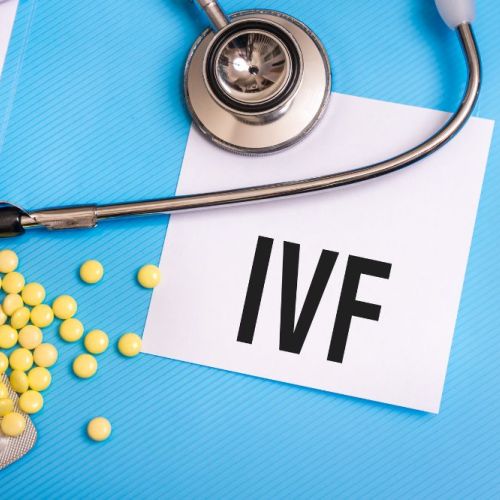How Soon Can You Have Intercourse After Tubal Reversal?

Tubal reversal is a procedure that’s done to reverse a tubal ligation, which is usually done as a permanent birth control method. Women sometimes change their minds after having their tubes tied and decide they want to have a baby. Fertility experts at the Center for Reproductive Health can answer your questions about tubal reversal. One of the most commonly asked questions is “How soon can you have intercourse after tubal reversal?”
What to Expect After Tubal Reversal
A tubal reversal is usually done as an outpatient procedure. At the Center for Reproductive Health, the procedure usually lasts one to two hours, and the average time spent in the recovery room after surgery is around an hour.
Each woman is different, and your surgeon provides instructions on how soon you can resume normal activities. There may be some discomfort the first week and your doctor may prescribe pain medication to help control the pain for the first few days. It’s important to rest as much as possible during the first two or three days after surgery.
In most cases, women are able to resume some of their ordinary daily activities within a week after surgery. It’s usually recommended that you wait at least two to three weeks after surgery before resuming intercourse. Some women prefer to wait a month or longer because they’re experiencing reduced energy levels.
When Can I Try to Get Pregnant After Tubal Reversal?
Your doctor provides detailed instructions about resuming intercourse and about how long you should wait before trying to conceive. Women are usually advised to wait at least two menstrual cycles after surgery before trying to get pregnant.
Women who undergo tubal reversal have approximately 50 to 80 percent chance of attaining pregnancy. The younger you are, the better your chances of attaining pregnancy without additional fertility treatments. The chance of successfully attaining pregnancy after tubal reversal if you’re over 40 is around 30 to 40 percent.
There are many factors to consider before you decide to have a tubal reversal. Your age and the likelihood that you’ll be able to conceive are among the most important factors your doctor will consider when deciding if you’re a good candidate for a tubal reversal. Your doctor also evaluates the type of surgery that was done and how much healthy tubing is left that can be reconnected. Your partner’s sperm quantity and quality is also evaluated.
What Other Options Do I Have?
If you’re not considered a good candidate for tubal reversal, that doesn’t mean there’s no hope of conceiving a child. In vitro fertilization may be a better option for you if there’s a problem with your partner’s sperm or you’re over 40 or you have any condition that contributes to infertility such as pelvic inflammatory disease, uterine fibroids or endometriosis.
The team at the Center for Reproductive Health provides compassionate support to couples struggling with infertility. Don’t hesitate to reach out with any questions you have about tubal reversal or other forms of infertility treatment. Schedule a consultation today.
Eliran Mor, MD
Reproductive Endocrinologist located in Encino, Santa Monica, Valencia & West Hollywood, CA
FAQ
Reproductive endocrinology and Infertility is a sub-specialty of Obstetrics and Gynecology. In addition to managing medical and surgical treatment of disorders of the female reproductive tract, reproductive endocrinologist and infertility (REI) specialists undergo additional years of training to provide fertility treatments using assisted reproductive technology (ART) such as in vitro fertilization.
Reproductive endocrinologists receive board certification by the American Board of Obstetrics and Gynecology in both Obstetrics and Gynecology and Reproductive Endocrinology and Infertility.
In general, patients should consider consulting with an REI specialist after one year of trying unsuccessfully to achieve pregnancy. The chance of conceiving every month is around 20%, therefore after a full year of trying approximately 15% of couples will still not have achieved a pregnancy.
However, if a woman is over the age of 35 it would be reasonable to see a fertility specialist earlier, typically after 6 months of trying.
Other candidates to seek earlier treatment are women who have irregular menses, endometriosis, fibroids, polycystic ovary syndrome (PCOS), women who have had 2 or more miscarriages, or problems with the fallopian tubes (prior ectopic pregnancy).
Approximately 1/3 of the time cause for infertility is a female factor, 1/3 of the time a male factor, and the remaining 1/3 a couples’ factor.
At CCRH, we emphasize the importance of establishing a correct diagnosis. Both partners undergo a comprehensive evaluation including a medical history and physical exam.
Furthremore, the woman’s ovarian reserve is assessed with a pelvic ultrasound and a hormonal profile. A hysterosalpingogram (HSG) will confirm fallopian tube patency and the uterine cavity is free of intracavitary lesions. A semen analysis is also obtained to evaluate for concentration, motility, and morphology of the sperm.
Additional work up is then individualized to direct the best possible treatment option for each couple.
In vitro fertilization (IVF) is the process that involves fertilization of an egg outside of a woman’s body.
The process starts with fertility drugs prescribed to help stimulate egg development. In your natural cycle, your body is only able to grow one dominant egg, but with stimulation medication we can recruit multiple eggs to continue to grow. After about 8-10 days of stimulation, the eggs are surgically retrieved and then fertilized with sperm in a specialized laboratory. Fertilized eggs are then cultured under a strictly controlled environment within specialized incubators in the IVF laboratory for 3-5 days while they develop as embryos. Finally, embryos (or an embryo) are transferred into the uterine cavity for implantation.
Before deciding if IVF is the right choice, it’s important to sit down with an REI specialist to discuss available treatment options. For some people, other methods such as fertility drugs, intrauterine insemination (IUI) may be the best first choice treatment. At CCRH, we believe each individual couple is unique and not everyone needs IVF.
While not painful, the fertility medications may some side effects including headaches, hot flashes, mood swings, and bloating. The injection sites may also bruise.
Unfortunately, no. Many people think once they start IVF it’s a matter of time that they will be pregnant and have a baby. But according to national statistics per the Society of Assisted Reproduction (SART), on average 40% of assisted reproduction cycles achieve live births in women under age 35. The chances of success then continue to decrease with advancing age.
At CCRH, we employ only evidence-based interventions to ensure patient safety and optimal outcome. While we cannot guarantee a baby, we guarantee that you will receive the best, most advanced, personalized care to help you maximize your chance of a baby.
The average IVF success rate (success measured in live birth rate) using one’s own eggs begins to drop around age 35 and then rapidly after age 40. This is due to the decline in egg quantity and egg quality as a woman ages.
Our clinic’s success rate consistently beats the national average year after year.
Individual insurance plans often do not have any coverage for infertility treatments. If you have a group plan, you can call members services to see if they have coverage for infertility (including consultation/workup and IVF).
After your consultation with our REI specialist, one of our dedicated account managers with sit with you to go over the cost of treatment.




